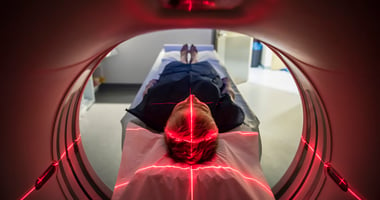The extent to which youth with obsessive-compulsive disorder (OCD) avoid situations that trigger...
CBT Provides Long-Term Benefits for Pediatric Patients With OCD
 |
Other research has suggested that CBT for pediatric OCD is a durable therapy, but these studies had been limited by either small samples sizes or having CBT combined with other treatments.
For the current trial, Per Hove Thomsen, D.M.Sc., of Aarhus University in Denmark and colleagues tracked one-year outcomes in 155 youth with OCD aged 7 to 17, whose symptoms improved (Children’s Yale-Brown Obsessive-Compulsive Scale [CY-BOCS] scores ≤15) after receiving 75-minute, manualized, exposure-based CBT once a week for 14 weeks.
During the one-year follow-up, CBT booster sessions could be given at any time, if required, with a maximum of three sessions per six-month period. About 40% of the participants had at least one booster session during the first six months, and 15% received at least one booster CBT session during the second six months.
At the one-year mark, 142 of the 155 participants still had CY-BOCS scores ≤15, and 121 had CY-BOCS scores of ≤10 (OCD remission). Only 13 of the patients, or 8%, experienced a relapse.
On average, CY-BOCS total scores dropped by 1.72 points during the first year after terminating the initial treatment, with children’s scores lowering by 1.34 points and adolescent scores dropping by 2.08 points. The authors noted that the adolescent group had a higher average CY-BOCS at the start of the study, so that may have enabled a greater reduction one year later.
“Clinically, these results imply that it is important to regularly monitor patients during the first year after successful first-line CBT,” Thomsen and colleagues wrote. “[O]ffering booster sessions to selected patients during follow-up might further strengthen the long-term effect of CBT.”
For related information, see the Psychiatric News article “Report Highlights Alternative Treatment Options for OCD.”
(Image: iStock/FatCamera)





